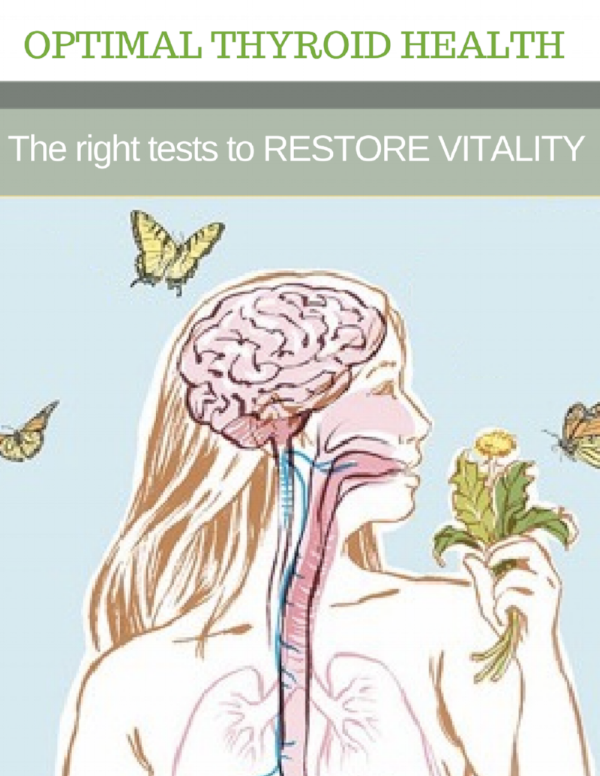Are you challenged with daily vital energy, dry skin, weight gain, hair loss or depression?
LOVING LIFE AGAIN
There are so many possible causes for these kinds of problems that it is easy to assume you're "just not getting enough sleep," however, it could be a condition that is all-to-often overlooked.
Defining Subclinical hypothyroidism ("mild thyroid failure")
The thyroid is a butterfly-shaped endocrine gland located at the base of your throat. This tiny organ has a huge responsibility; it makes thyroid hormones, which are secreted into the blood and then carried to every tissue in your body. Thyroid hormones regulate your metabolism, which helps your body use energy, maintain proper temperature, and keeps your organs (brain, heart muscles, etc.) functioning.
Most physicians simply test a patient's TSH (thyroid-stimulating hormone) and T4 (thyroxine) levels in order to determine whether a thyroid condition exists. If the patient's levels are within the normal range, then the patient is told, "it's not your thyroid." But that's not the full picture!
Beauty Biology Breakdown
Our hormones work together like thermostats: when one level is activated, the other shuts off, and vice versa. That's how your thyroid hormones work as well: The hypothalamus (a tiny gland located in the brain) releases a substance called thyrotroptin-releasing hormone (TRH), which triggers the pituitary gland to release the thyroid-stimulating hormone (TSH). TSH then triggers your thyroid gland to produce two hormones: triiodothyronine (T3) and thyroxine (T4).
The T4 and T3 hormones circulate through your bloodstream "bound" to proteins, although a small percentage is considered "free," or unbound. Some T4 gets converted to T3 as it moves through multiple tissues and organs (notably the liver, brain, and muscle). Some T4 and T3 are separated from their protein carriers during these processes, becoming "free" again to exert a metabolic effect on the body.
Stopping the cycle and getting clear.
The thyroid complex. If you or someone you know suspects a thyroid issue, or simply wants to rule one out, it is important to consult with a clinician who is experienced in thyroid hormone dysfunction. Blood tests should be ordered to put together the clearest picture of how your thyroid hormones are working -- or not. For example, the "Total T4" test can tell your medical practitioner how much T4 your thyroid is producing, while the "Free T3" test helps to show how much is "bio-available" for the cells and tissues of your body.
In the case of subclinical hypothyroidism, the TSH blood test levels are typically normal or just slightly elevated while the T4 and T3 levels appear in the low to normal range -- in addition to the patient experiencing classic (though mild) symptoms of hypothyroidism.
Is it really a "normal range?"
Even in this low-normal range, your thyroid may still be low-functioning (in the 10th percentile), creating symptoms that can significantly impact your quality of life. Every organ in your body relies on a healthy thyroid!
Getting the root with 21st Century Internal Medicine Providers
At BE, I refer our clients to top level internal medicine professionals that order blood tests that reveal the full picture of how your thyroid hormones are functioning, including TSH, Free T3, Free T4, TPO (Thyroid Peroxidase Antibody), TGA (Thyroglobulin Antibody), and Reverse T3.
By working with trained functional medicine practitioners, they better understand the subtle signs of an imbalance, and carefully treat patients for subclinical hypothyroidism when symptoms are present.
Need Help?
If you need hormone expertise that you cannot find locally, you can email mehello@beautyecology.com for a list of our top-notch referrals.
xo Kassandra

